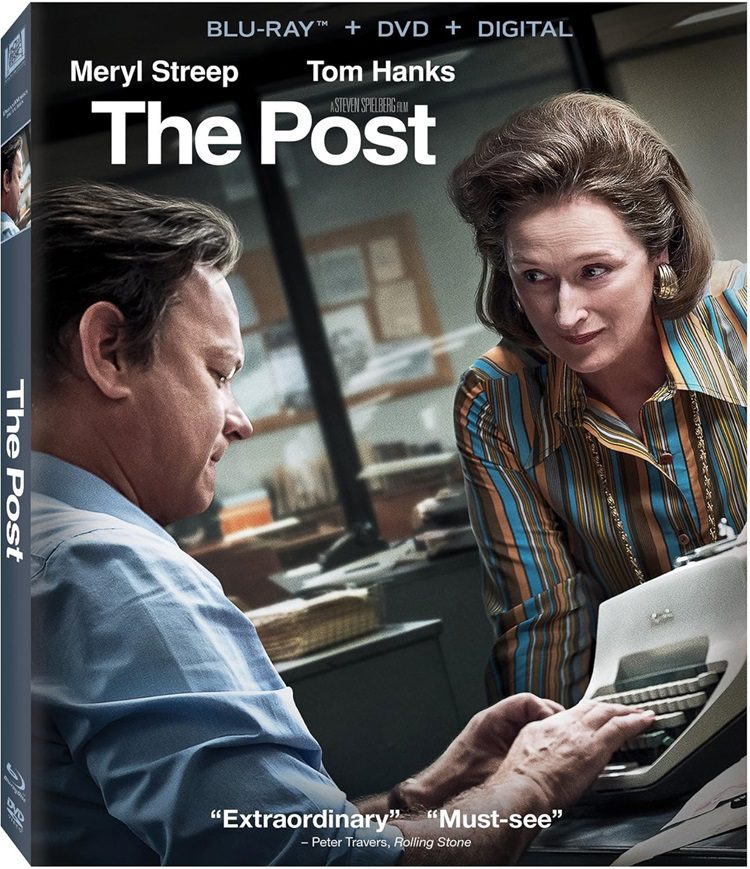
While The Post boasts an incredible cast and crew overflowing with legends, the actual movie fails to hold much interest. That’s almost entirely due to the script, a yawner about the brave actions of The Washington Post staff in reporting on the leaked Pentagon Papers condemning U.S. involvement in Vietnam. The topic is a clear and at times a heavy-handed allusion to today’s charged political climate regarding news agencies and government meddling, but it’s just not very compelling as a feature film. We already know how the story plays out, and it’s presented with precious little drama and no direct antagonists, so this is a case where the film is only enjoyable as a showcase for its immense talent.
Meryl Streep plays Katharine Graham, the publisher of The Washington Post. Graham fell into the role by chance, so the film spends time trying to build her legacy as a feminist trailblazer as she fights to make her voice heard in all-male board meetings and ultimately makes the sole decision to proceed with publication of the Pentagon Papers. Her hard-nosed editor Ben Bradlee (Tom Hanks) doggedly pursues the elusive Papers, but his efforts seem to be mostly driven by an overwhelming desire to scoop The New York Times rather than expose government conspiracy. The film is stacked with lots of other fine actors such as Bob Odenkirk, Sarah Paulson, Bruce Greenwood, Alison Brie, Matthew Rhys, and Carrie Coon, but they all get such scant screen time in the two-hour film that it would seem like a slight in any other project. As the Blu-ray cover clearly conveys, this is really the Streep and Hanks show, and everybody else is just along for the ride. Thankfully, both actors are a joy to watch, with Streep in particular mastering her challenging role as an underappreciated, misunderstood businesswoman.
Spielberg shepherds the film with his typical steady, assured hand, even more remarkable than usual given that the entire production came together and reached theaters in less than a year, even while he was deep in post production on his latest hit, Ready Player One. He teams once again with his long-time cinematographer, Janusz Kaminski, who contributes his typically unappealing, washed-out, muted photography that sort of works this time around given the era of the film. I appreciated some of the exterior camera work that serves as an homage to early ‘70s dramas such as The French Connection and The Conversation, as the camera tracks its subject from very far away before shakily zooming in to, well, still pretty far away, giving viewers an immersive feel of the drab, boxy concrete jungle of government office buildings.The score by John Williams doesn’t establish any discernible themes, seeming to just be incidental orchestral music that adds little to the film.
The Blu-ray contains a robust amount of bonus features, with a 15-minute look at the meticulous set and costume design used to recreate the early 1970s era, followed by a half-hour making-of segment mostly consisting of the cast and crew congratulating each other and being in awe of the amount of talent assembled for the project. Blu-ray exclusive features are a look at the real-life Graham and Bradlee, as well as more in-depth examinations of the cast and characters. The last brief feature takes a look at the recording sessions for the score, where Spielberg delightedly mentions that this project marks the 44th year of his ongoing legendary collaboration with John Williams. One final fun bonus and product tie-in: the Blu-ray package contains a 60-day free digital trial offer for The Washington Post.